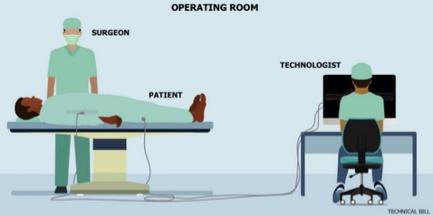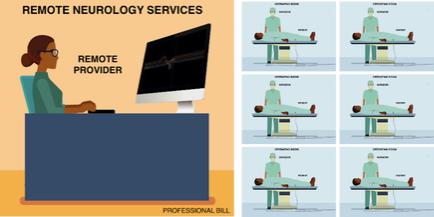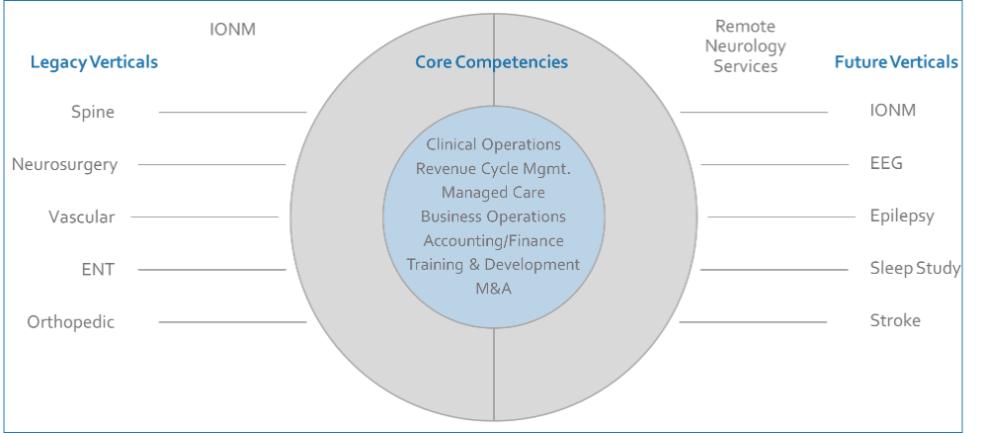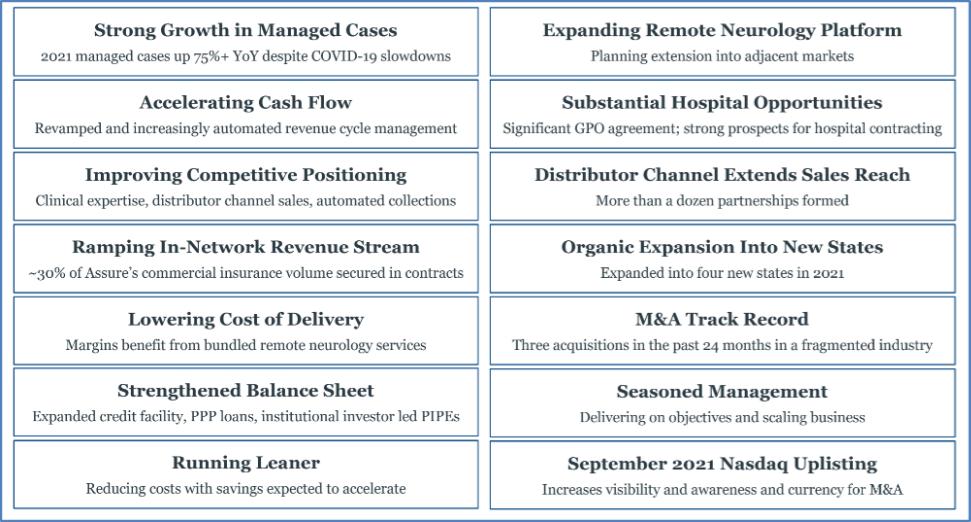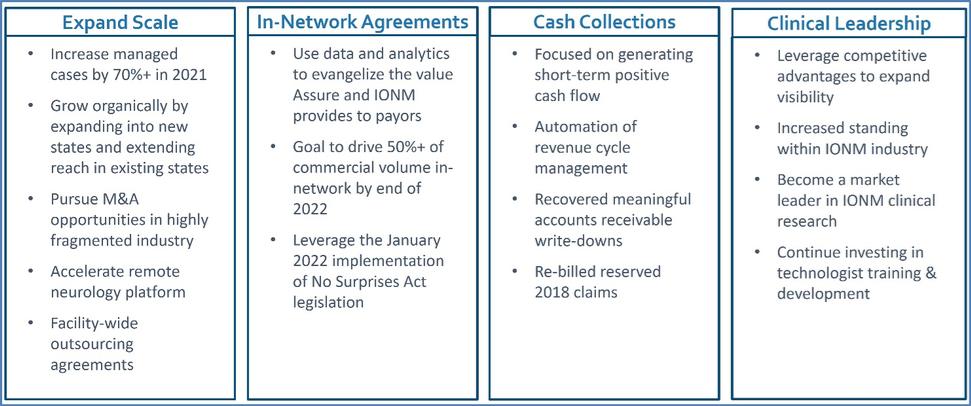Overview
Assure is a best-in-class provider of outsourced intraoperative neurophysiological monitoring (“IONM”) and an emerging provider of remote neurology services that help make surgeries safer. The Company delivers a turnkey suite of clinical and operational services to support surgeons and medical facilities during invasive procedures. This includes scheduling of the interoperative neurophysiologist (“INP”) and supervising practitioner, real time monitoring, patient advocacy and subsequent billing for the services. IONM has been well established as a standard of care and risk mitigation tool for various surgical verticals such as neurosurgery, spine, cardiovascular, orthopedic, ear, nose, and throat, and other surgical procures that place the nervous system at risk.
In 2021, Assure provided IONM services for approximately 258 surgeons in 150 hospitals and surgery centers located in: Arizona, Colorado, Kansas, Louisiana, Michigan, Missouri, Nebraska, Nevada, Pennsylvania, South Carolina, Texas and Utah. Our continued geographic expansion initiatives, including facility-wide outsourcing agreements with medical facilities and hospital networks, coupled with the surgical vertical expansion efforts, extending the Company’s reach into remote neurology services and selective acquisitions are expected to generate substantial growth opportunities going forward. In the future, it may be necessary for us to raise additional funds for the continuing development of our business plan.
The Company has financed its cash requirements primarily from revenues generated from its services, by utilizing debt facilities and from the sale of common stock.
See “Item 1. Business” for a complete description of our business.
COVID-19
Our business and results of operations have been, and continues to be, adversely affected by the global COVID-19 pandemic and related events and we expect its impact to continue. The impact to date has included periods of significant volatility in various markets and industries, including the healthcare industry. The volatility has had, and we anticipate it will continue to have, an adverse effect on our customers and on our business, financial condition and results of operations, and may result in an impairment of our long-lived assets, including goodwill, increased credit losses and impairments of investments in other companies. In particular, the healthcare industry, hospitals and providers of elective procedures have been and may continue to be impacted by the pandemic and/or other events beyond our control, and further volatility could have an additional negative impact on these industries, customers, and our business. In addition, the COVID-19 pandemic and, to a lesser extent, the impact on other industries, including automotive, electronics and real estate, increased fuel costs, U.S. restrictions on trade, and transitory inflation have impacted and may continue to impact the financial conditions of our customers and the patients they serve.
In addition, actions by United States federal, state and foreign governments to address the COVID-19 pandemic, including travel bans, stay-at-home orders and school, business and entertainment venue closures, also had and may continue to have a significant adverse effect on the markets in which we conduct our businesses. COVID-19 poses the risk that our workforce, suppliers, and other partners may be prevented from conducting normal business activities for an extended period of time, including due to shutdowns or stay-at-home orders that may be requested or mandated by governmental authorities. We have implemented policies to allow our employees to work remotely as a result of the pandemic as we reviewed processes related to workplace safety, including social distancing and sanitation practices recommended by the Centers for Disease Control and Prevention (CDC). The COVID-19 pandemic could also cause delays in acquiring new customers and executing renewals and could also impact our business as consumer behavior changes in response to the pandemic.
Since the start of the second quarter of 2021, there has been increased availability and administration of vaccines against COVID-19, as well as an easing of restrictions on social, business, travel, and government activities and functions, including healthcare and elective surgeries, and we have experienced a gradual resumption of economic activities in our industries. On the other hand, infection rates continue to fluctuate in various regions and new strains of the virus, including the Delta variant, remain a risk, which may give rise to implementation of restrictions in the geographic areas that we serve. In addition, there are ongoing global impacts resulting from the pandemic, including disruption of the supply chains,

